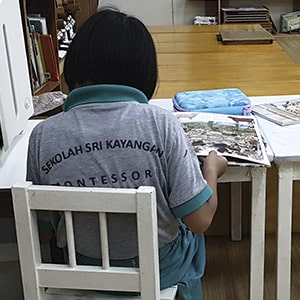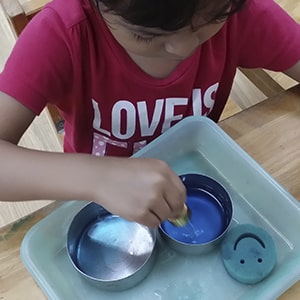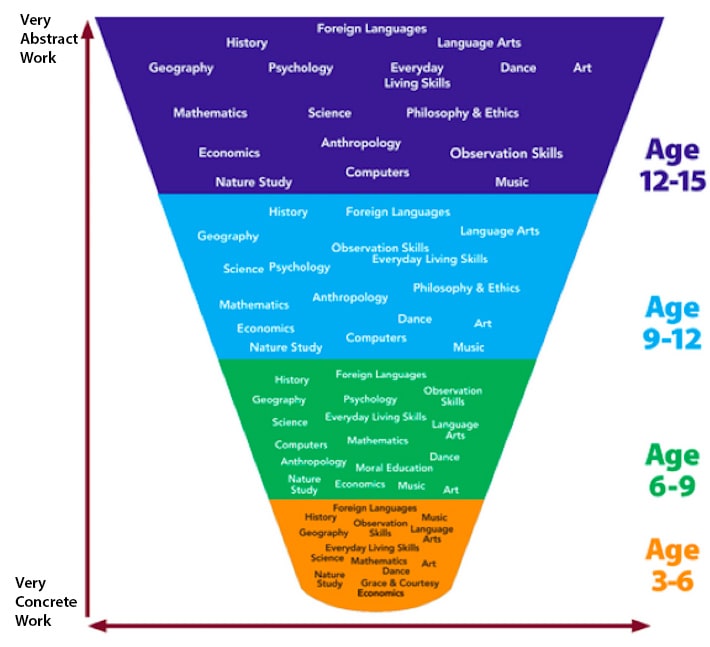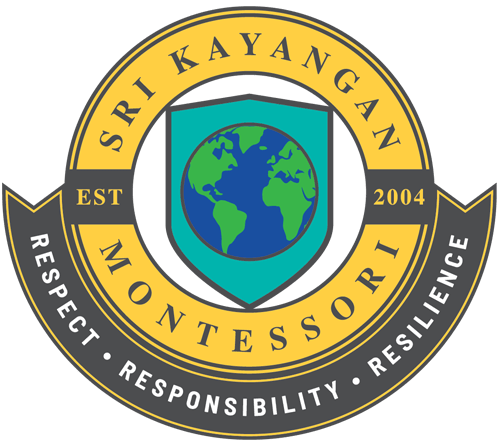Curriculum
At SKM, our aim is to provide a prepared environment comprising authentic Montessori practices.

Why SKM?
At SKM, our aim is to provide a prepared environment comprising authentic Montessori practices, trained and committed teaching personnel, supportive parents all together engaging with community stakeholders all of whom encourage and inspire motivation and independence that ultimately results in our students reaching their maximum potential.

Aside from both the local (National Preschool, Primary and Secondary Curriculum) and international curriculums (PreIGCSE and IGCSE) integrated alongside the Montessori Methodology, students are also offered customised curriculums as part of their daily lessons in order to allow them to obtain mastery at their own pace and according to their natural ability.
SKM is unique in that all learning is supplemented according to the needs and pace of the student. WIth the demands of the future workplace becoming increasingly digitised, students at SKM are being prepared to supplement their learning through the media of technology in the form of the SKM E-Learning.
Through SKM E-Learning, students physically attending school, in addition to actively manifesting their learning in person with peers and teachers, also work hand-in-hand with their virtual peers as they creatively learn to source, process and present knowledge of benefit to all.
Fueled by these concepts related to what is futuristically-conceived, the programme of SKM E-Learning embarks on an enhanced era of skills in data literacy, critical thinking, being tech savvy, adaptability and flexibility, creativity, emotional intelligence (EQ), cultural intelligence and diversity, leadership skills, judgment and decision making, and collaboration, all skills that have been reported as essential for today’s learner (Forbes.com, May 2020).
SKM encourages and evolves learning in students without restricting knowledge and experience to what is acquired through school books and interactive sessions online and offline only, but strongly emphasizes for students to always Respect, exhibit Responsibilty and build Resilience in themselves as they witness the changes in leadership and the world, economically, environmentally, culturally and mindfully.
National Preschool and Permata Curricula
Learning domains of the national early childhood care and education curricula.
National Primary and Secondary Curricula
Learning domains and content of the national curricula for both elementary and middle school levels.
Montessori Methodology
Inquiry based, empowering and sustainable methodology to supplement all thinking and learning skills needed for life.

Source: The Internet
Our Curriculum

PRACTICAL LIFE / LIVING SKILLS
Our Practical Life activities at all levels (Preschool through Middle School) develops skills necessary for work, family and community life in the years to come sustaining the same through much experience of decision-making, higher order thinking skills, determination and resilience.

SENSORIAL
Our Sensorial activities assist our young children in learning about discrimination and order, as well as broadening and refining their senses. From sensorial explorers, children graduate to more conceptual thinking as they understand their physical environment.

PHYSICAL, SOCIAL & HEALTH EDUCATION
Commonly known as PSHE, this is the knowledge, skills and attributes children need to keep themselves healthy and safe, and prepare for life. In a Montessori context, it also nurtures in children self-awareness, self-esteem and confidence to be him/herself.

GEOGRAPHY & HISTORY
Alongside science, geography and history are expressed in the form of The Great Lessons that comprise studies on the coming of the universe, life on earth, human beings, language and numbers.

SCIENCE
In the form of biology (botany, zoology, human anatomy & ecology), physics, chemistry and astronomy, students are introduced to a deep understanding of the world and the universe.

MATHEMATICS
Our concrete mathematical materials assist the child's developmental growth by introducing a sequential understanding of mathematical concepts. Students progress to more analytical and deducive reasoning as abstract thoughts rule how their world is measured and counted through arithmetic and geometry.

LANGUAGE ARTS
The importance of a rich language environment for children is one of the main foundations of the Montessori philosophy. English will be the main medium of instruction, whilst other languages will be available as an additional subject upon request, e.g. Bahasa Malaysia (Malay)., French, Arabic, Mandarin

MUSIC, ART & CRAFT, CODING
Different forms of expression is very much encouraged as a part of our students’ learning environment as they allow much motor coordination linking to connections made in brain making room for more wholesome holistic development.

COSMIC EDUCATION
Cosmic Education is a cornerstone of the Montessori Philosophy. At its core, Cosmic Education tells the story of the interconnectedness of all things. It describes the role of education as comprehensive, holistic and purposeful; to encompass the development of the whole person within the context of the universe.
Montessori . Facts
Maria Montessori was one of the first woman to receive a medical degree in Italy.
Alexander Graham Bell started a Montessori school for his grandchildren.
Maria Montessori left Italy during World War II. She moved to India where she and Gandhi often discussed the role of children and their education in promoting world peace.
In 1915, a Montessori class was set up at the San Francisco’s World’s Fair. Maria Montessori won two gold medals for education.

